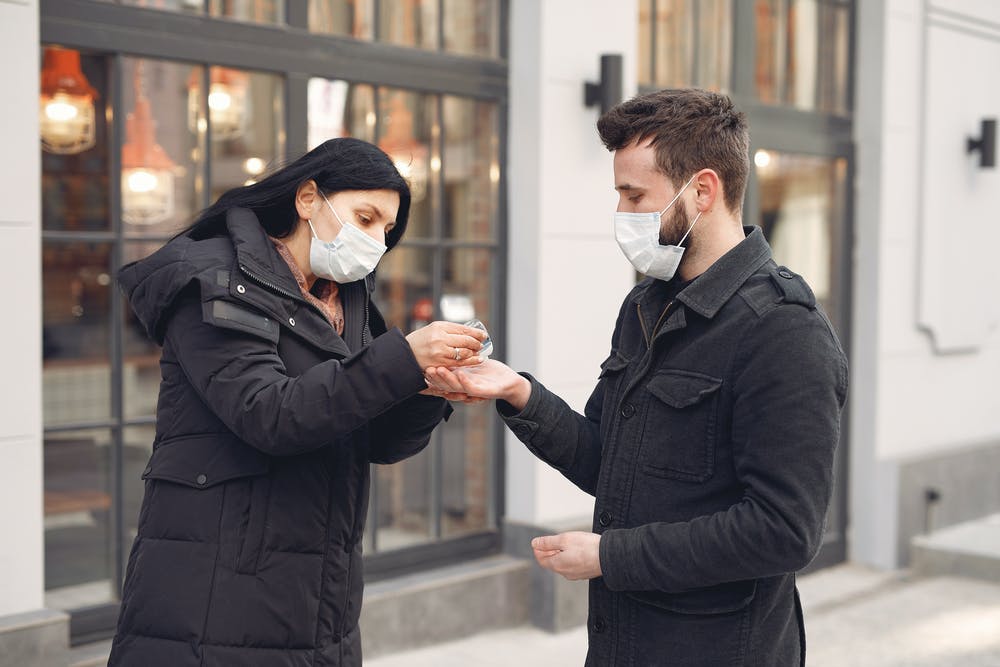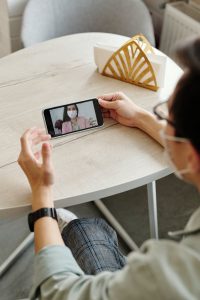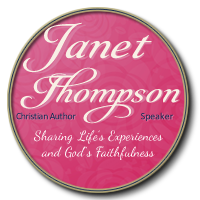
The one thing everyone has in common today with most people around the world is that we’re all at home. Unless you’re in the healthcare community, work at an “essential” business or one that has figured out how to do curbside pickup, you’re experiencing alone time.
Those who have children or family members at home might be laughing that you wish you had some alone time.
In recent years, there’s been infrequent unity across political and spiritual differences, but COVID-19 has leveled the playing field. Well, maybe not political divides—sadly, many are trying to make this crisis political.
The last significant unifying occurrence in America would probably be 911. While we all mourned together the horrific attack on our country, New York suffered the brunt of pain and loss.
COVID-19 is indiscriminate. It’s a pandemic. The entire world is experiencing pain and loss. We’re all in this together. Even though states and countries may be handling this crisis differently, the streets of most towns and cities are empty.
We’re #alonetogether!
Physical Distancing but Not Social Distancing
The first time I heard the term “social distancing,” it grated on me like fingernails on a chalkboard. I didn’t like it. People are saying it will be our new normal. That would be a tragic fallout of this experience.
We will probably need to stay at a physical distance from each other, maybe not hug or handshake for a while. Some say forever.
But socially isolating ourselves from each other permanently is dangerous and unsustainable. Social distancing can never become social disengagement!
We need each other. We need physical touch. We need to stay in touch!
Since the beginning of Creation, The Lord God said, “It is not good for the man to be alone. Genesis 2:18
God created us as social beings to interact and communicate with each other, not distance ourselves emotionally, spiritually, physically, socially, or mentally.
The ultimate punishment for someone in prison is solitary confinement, alone.
Even if you’re not typically a social person, social isolation leads to loneliness, which leads to poor physical and mental health.
How can I say that?
Well here are some statistics from a psychologist for those who suffer from loneliness:
29% are more likely to have coronary artery disease
32% are more likely to have a stroke or die
40% are more likely to have dementia, if they’re in that age group.
- When we stop using our cognitive skills to interact, our brain starts deteriorating.
- When we stop using our relational instincts to interact, our emotions start deteriorating.
- When we stop using our physical impulses to interact, our body starts deteriorating.
In an article by Axel F. Sigurdsson, MD, PhD, Loneliness, Social Isolation, and Poor Health, He pointed out
“Studies show that loneliness and social isolation are associated with increased risk of early mortality. Being socially connected increases not only psychological and emotional well-being but also has a positive influence on physical health.”
“Although loneliness is usually associated with social isolation, it is important to discriminate between the two. Social isolation refers to a lack of contact with other people, while loneliness indicates a state of mind.”
Despite these different definitions, there is significant overlap between social isolation and loneliness. Hence, the terms are often used interchangeably.”
You might be actually living alone in isolation right now or you might be feeling isolated even though you’re not physically alone.
We’re out of our routines. Maybe you went to work every day and now you’re out of work or working from home.
How many times did we complain about having to grocery shop, but now it’s considered an “essential” reason to leave home. It’s a luxury even though we have to mask up and wear gloves and deal with empty shelves, at least we’re out of the house and among other people.
We’re #alonetogether!
We Can, and Must, Stay Socially Connected Even While Quarantined

Social media probably creates more virtual friends, than face-to-face friends. Yet aren’t those of us on social media glad we have these “friends” to communicate and commiserate with because we’re all going through something similar. It gives us a sense of social connectedness.
As our fresh food supply at home started dwindling, I looked in the refrigerator vegetable drawer and there was a big package of organic Romaine hearts and a bundle of avocadoes. That was all. So I put a post on Facebook, “I have Romaine lettuce but only avocadoes to make a salad. What else do you put in your salads? #nothingfresh #stayinghome.”
I started getting immediate responses and within hours, I had 100 comments and many new ideas for my salads. I heard from people I haven’t “talked to” on Facebook or in person for years from all walks of my life. We couldn’t share a meal together, but they were eager to help me plan mine.
My cousin read the post and commented, “These all sound so good!”
It almost felt like I had a group of friends helping me make dinner, while they probably were working on their dinner too.
If you’re not a social media fan, you can use SKYPE, ZOOM, or video chatting and messaging to talk while seeing each other. I mentioned in last week’s blog, #America Works Together Keeping the Faith, how my grandkids gave me a virtual birthday party.
We can use the tools we have to stay connected with each other. Churches who have video transmitting capability are reporting more online viewers and commitments to faith than they would ever have at church on Sunday. God is using the “screen” to reach people for Christ.
God uses inconvenient, unpleasant circumstances for good and so can we. It’s not the same as being together, that’s for sure, but it’s what we have right now.
We’re #alonetogether!
A note on social media. Stay away from negative input or people that bring you down emotionally. Avoid getting into political discussions or any that cause you anxiety.
“Call Your Mama!”
In one news report, the Surgeon General was discussing why older people were more susceptible to the coronavirus. He also addressed the loneliness that especially occurs if they’re living alone or unable to drive, be active physically, or get out of the house. Now they can’t even visit with their grandchildren and friends.
He closed his talk with “Call your mama!”
I would say my daughter and I have talked more since the pandemic started than we did before. It wasn’t like we didn’t talk a lot, we just talk more now—not texting or on Facebook, but on the phone. Hearing each other’s voice, laughs, and sometimes tears!
The story of the Rosetans may help to understand the importance of family relations and social surroundings for the risk of heart disease and other physical and mental illnesses.
In 1964 a study published in the Journal of the American Medical Association examined a population of recent Italian immigrants in Roseto, a small town in the state of Pennsylvania. The study was instigated because the town doctor was completely baffled by the Rosetans’ near immunity to heart disease. He reported his observation and an extensive statistical population study funded by the American State and Federal governments was conducted.
The study compared health statistics of Rosetans to neighbouring towns and the initial results were astonishing. During the seven year period of study from 1955-1961:
No-one in Roseto under the age of 47 died of a heart attack; there was a complete absence of heart disease in men under the age of 55
The rate of heart attacks in men over 65 was half the national average
The death rates from all causes was 35% lower than anywhere else
The study confirmed the town doctor’s findings and went on to examine the factors that gave the Rosetans such improved health. It became known as the ‘The Roseto Effect’.
While living in the town to conduct the study however, the researchers observed several major differences as to how the Rosetans related to others in their community. They noticed a remarkably close-knit social pattern that was cohesive and mutually supportive with strong family and community ties, where the elderly in particular were not marginalized, but revered. Put simply, the Rosetans lived in brotherhood with one another.
The Roseto effect is a term used to describe the phenomenon by which a close-knit community experiences a reduced rate of heart disease.
So call your Mama, Dad, Grandparents, or extended family! Your life and their life could depend on it right now.
#AloneTogether!
The Loneliness Epidemic
I’ve mentioned in previous blogs that God has been nudging me to write a book on loneliness. He planted the seed in my mind last fall as my latest book Everyday Brave: Living Courageously as A Woman of Faith was releasing. I kept putting God off. We spent six weeks after the release of this book in Southern California. Then we returned home to the holidays, and before we knew it, we were experiencing a pandemic where people are isolated! Alone! Lonely!
I said, “Lord, forgive me for not taking You seriously when You put the theme of loneliness on my heart.” I had been asking people to pray for me to start writing, but I often said I was afraid the Lord would ask me to personally experience loneliness before I could write about it.
Well here we are. I’m in the high-risk category for COVID-19. I’m isolated! I’m writing.
I know many of you are experiencing some type of loneliness now or you have in the past. Would you be willing to share your story to help someone else? I need to hear from you!
- When have you experienced loneliness?
- How are you dealing with staying home now?
- How did it present itself to you?
- How did you overcome it, or maybe you haven’t yet?
- How did God help you through it or what helped you the most?
You don’t have to answer in the comments here if that’s uncomfortable, but I would so appreciate receiving your story. I’ve noticed more people want to share their stories these days to help others and to help themselves heal.
Remember we’re all #Alonetogether!
I wanted to remind you that Everyday Brave: Living Courageously As A Woman of Faith is at a reduced price on my website for the month of April. I’ll sign and personalize it for you. It might make a thoughtful Mother’s Day gift for someone or for you. We’re certainly living in times requiring us to Get Our Brave On.









Leave a Comment